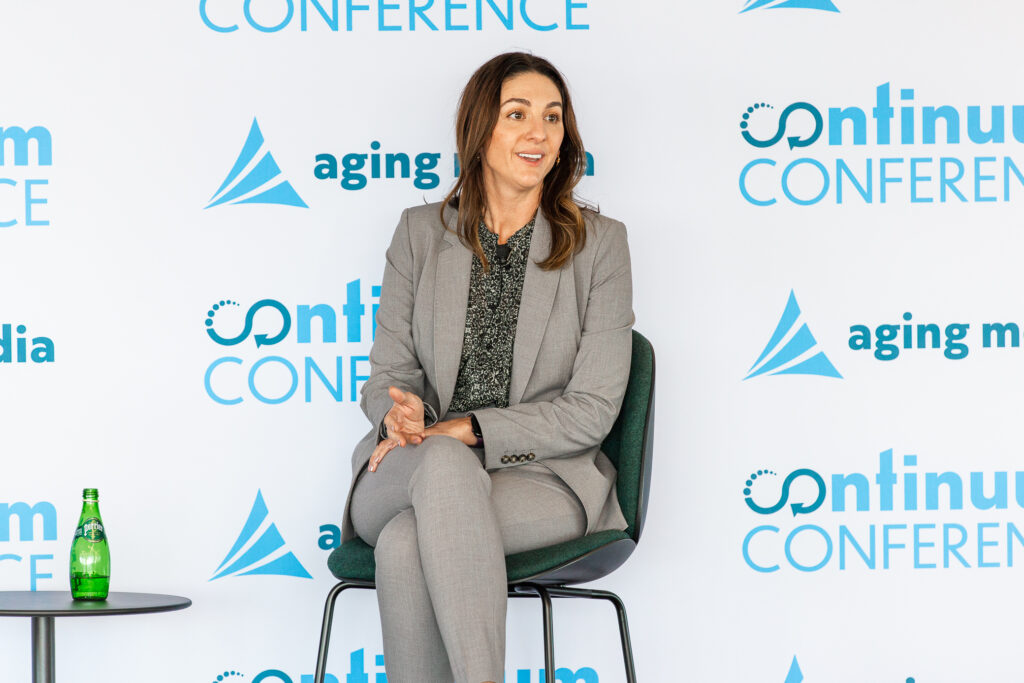As in-home care providers look to use a more integrated approach to care, it’s critical to some that mental and behavioral health is part of the equation.
Despite the added costs that come with offering those services, the need to care for patients with those ailments is undeniable.
“Typically, these folks are 10 to 15 times more costly than a patient without behavioral health need experience,” Joe Cramer, president of hospice and behavioral health at Elara Caring, said during Aging Media Network’s Continuum event in December. “We’re looking at how to partner with primary care or psychiatric providers to do a total cost of care from either an episodic perspective, or a full total cost of care perspective, where we are essentially the quarterback of their care.”
Elara Caring is a Texas-based home health, hospice, personal care, palliative care and behavioral health provider. It has a 16-state footprint and does about 100,000 in-home visits for patients with serious mental illness or substance use disorder per year.
Prior to the pandemic, Elara Caring provided behavioral health services in two states. It now does so in nine states, and has been able to do so by training its psychiatric nurses on how to properly care for patients with specific needs.
Recently, Elara Caring developed a program called “Embrace,” which aims to help its members who have experienced loss. That loss could be of a loved one, their independence or their home, Cramer explained.
Patients can access the program at home, which could be a skilled nursing facility (SNF), senior living facility or a private residence.
“Roughly 50% of individuals going into senior living or a SNF have elevated anxiety or depression,” Cramer said. “Our nurses are really trained in supporting their behavioral health diagnosis.”

Senior care providers sometimes focus on the medical and think of behavioral treatment as secondary. However, Elara Caring’s approach is symbolic of a larger movement in senior care where the two kinds of care can be addressed under one umbrella.
“With Elara, we focus on the behavioral with the medical conditions there,” Cramer said. “We’re looking at what’s causing the anxiety or depression, if they have that, and what kind of loss they’re dealing with to really support them.”
Embrace, Cramer said, has reported a 78% reduction or stabilization of a patient’s anxiety or depression and 33% reduction in patients being admitted into facilities rather than the places they call home.
Payers and insurers are also involved heavily in this movement.
“ACOs, Medicare Advantage, Medicaid organizations, they’re starting to come to the table knowing that they have to start paying for these services,” Cramer said. “Right now, we’re trying to find a middle ground of what we can do to be able to support these services. For us, we’re also trying not to get over our skis and go too far down the line without having the full staff there. But looking at how we get reimbursed for the services is the first step.”
The Chicago-based Oak Street Health (NYSE: OSH) is a good example of targeted behavioral health services working. It has a network of value-based primary care facilities that serve adults on Medicare. As of late 2022, the company had 161 centers in 21 states with over 145,000 at-risk patients receiving its care.

“We’re often in several underserved communities where they don’t have access to other services, or those services have not been available,” Katherine Suberlak, VP of clinical health services at Oak Street Health, said at Continuum. “For us, behavioral health checks all the boxes. Clinically, it’s the right thing for the patient. It’s very helpful to our care teams to have the added specialty there. Lastly, we see the outcomes. It impacts our total cost of care when we include behavioral health as a service to our patients.”
By integrating behavioral health into its care programs, Suberlak said 73% of Oak Street Health report experiencing a sustained reduction in depression at 6 months following treatment.
Moving forward, Elara Caring and Oak Street Health both believe partnerships will be key to keep at this issue.
“As a full-risk provider, partnerships are key for us, particularly when we’re caring for a patient across a continuum,” Suberlak said. “We can’t do it alone.”




